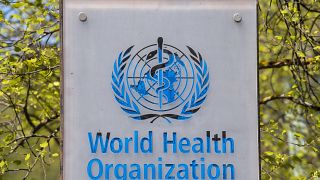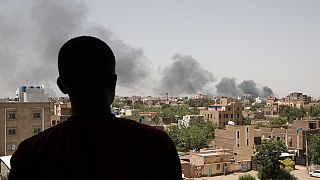Italy
Pressure is building on authorities in Italy to close the notorious Ponte Galeria migrant detention centre near Rome where a 19-year-old Guinean allegedly hanged himself last month.
The country's 10 migrant repatriation centres have long been the target of criticism by human rights groups.
They describe them as black holes of human rights violations where undocumented migrants are essentially detained for months without charge in conditions worse than prisons.
The centres are supposed to be temporary holding facilities for migrants whose asylum bids failed or foreigners who have been ordered expelled for criminal or other reasons while the paperwork is completed to send them home.
But because of bureaucratic delays and a lack of repatriation agreements with countries of origin, only around half of the detainees are actually sent back.
The centres end up acting as de-facto prisons but without prisons’ rehabilitation, educational or proper medical facilities, rights groups say.
Opposition senators who visited the Ponte Galeria centre recently decried the “undignified” conditions for people ordered to leave Italy but awaiting repatriation.
The right-wing government of Premier Giorgia Meloni has defended the use of the centres and even called to expand them as a necessary component of a broader strategy to manage Italy’s migration flows.
The government has extended the amount of time migrants can be held to 18 months as part of a deterrent strategy to persuade would-be refugees and their traffickers to stay home.
On Friday, the Radicali Roma, an association affiliated with the Italian Radical Party, started an online petition calling on centre-left Mayor Roberto Gualtieri to close the Ponte Galeria centre.
It cites repeated episodes of violence, suicide and protests by desperate detainees.
Last month, the body of Ousmane Sylla was found in the centre after he apparently hanged himself.
He had been ordered expelled from the country, but Italy has no repatriation agreement with his native Guinea.
After his body was discovered, detainees set mattresses on fire and threw objects at law enforcement personnel, resulting in 14 arrests.
In recent days, another six migrants attempted to kill themselves at the same facility, according to the head of the office of Rome’s prefect.
One remained hospitalized, two were returned to the centre and three were transferred to other facilities because their conditions were deemed “incompatible” with detention at Ponte Galeria, he said.
Last month, Rome’s city assembly called on Gualtieri to open “urgent” negotiations with government authorities to close the Ponte Galeria centre given the “serious violations of human rights suffered by people detained there”.
Italy's national guarantor for the rights of prisoners, Mauro Palma, also weighed in after visiting the centre in December.
Palma decried the lack of monitoring at the centre, saying any facility that deprives people of their freedom must have a functioning system of registering critical events and medical interventions for violence that results in injury, riots and attempted escapes to ensure the basic rights of detainees are being respected.
This week, three opposition senators visited the centre and emerged shocked by what they witnessed.
Senator Walter Verini of the opposition Democratic Party said while criticism of the centres had been continuous for years, the government’s new provisions allowing for detention of up to 18 months required immediate action.
“We have to fight because this is something unworthy of a civilized and democratic country,” he said.
Interior Minister Matteo Piantedosi has described the expansion of the network of repatriation centres as a “fundamental” element in the government’s overall migration strategy.
The difficult conditions found in them were the result of riots and vandalism by the detainees, the minister insisted.
At a recent media briefing, he said 50% of the detainees were repatriated, that there had been an increase of 20%-30% in repatriations so far this year compared to the previous year, and that he expected the numbers to grow.
But the actual number of repatriations is among the lowest in Europe, with an average of 3,000 people sent back every year out of more than 150,000 arrivals in 2023 and more than 105,000 in 2022.












01:38
Sexual violence in conflict increased by 50% in 2023, says UN
Go to video
Expulsions in Rwanda: genesis of a controversial bill
01:09
At least 16 dead in latest migrant boat tragedy off the coast of Djibouti
01:09
BNP Paribas faces lawsuit over alleged role in sudanese genocide
Go to video
Spain: 2 smugglers convicted for the death of 4 Moroccan migrants
01:36
Italian PM Giorgia Meloni visits Tunisia to discuss migration